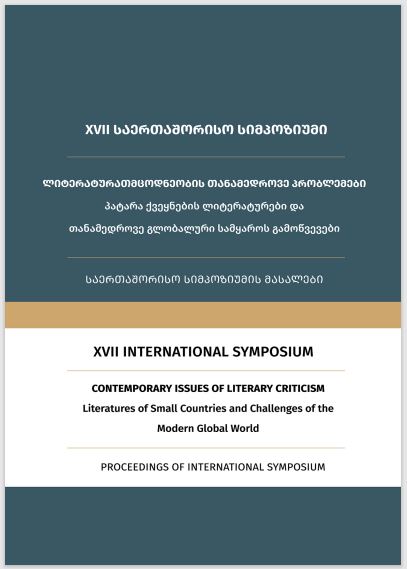Basil Melikishvili Observed as a Character (From Mikheil Javakhishvili's "Arsena Marabdeli" gallery)
Published 2024-12-20
Keywords
- Heir,
- liaison,
- prototype,
- symbol,
- mythological
Abstract
One of the young writers most esteemed by Mikheil Javakhishvili in the 1920s was Basil Melikishvili, whose novelette "Smokeenshrouded Swallow" was published in 1928, appearing in the inaugural and simultaneously closing issue of journal, Ariphioni.
The senior fellow writer, Mikheil Javakhishvili, had previously depicted Basil Melikishvili's character in his novel "Arsena Marabdeli," set a century earlier. This narrative served as a reflection of contemporary societal and political turmoil, particularly the 1924 uprising and its leader, Kakutsa Cholokashvili, who appeared as the implied prototype of Arsena Marabdeli, and a reflection of Kakutsa’s biography.
In portraying Arsena's entourage, Javakhishvili drew from the essence of Kakutsa Cholokashvili's companions, imbuing characters with similar traits. Melikishvili, deeply involved in the uprising's planning and closely associated with Kakutsa Cholokashvili, thus transformed into Arsena's younger brother, Erekle Odzelashvili.
The novelist assigned profound symbolic significance to the final scene – the dapple grey horse of Arsena, escaping Giorgi Kuchatneli, rushes towards Erekle and invites to ride it.

